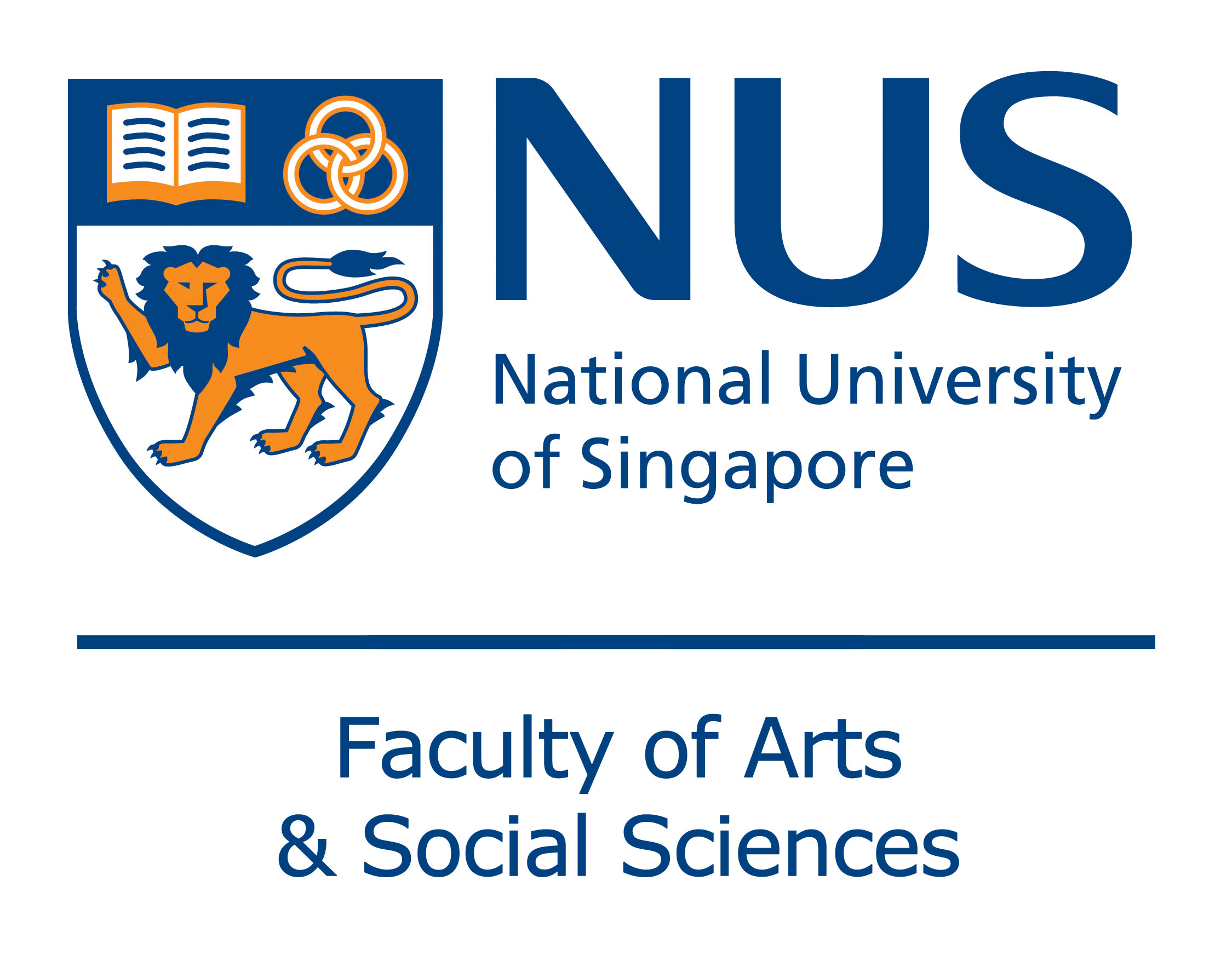Infrastructure & Infrastructural Thinking, the Environment, and Urban Ecology & Urban Development: Policy Implications
Date & Time: 2:00-5:00pm, Friday, October 6, 2023
Venue: NUS FASS Research Division Seminar Room (#6-42)/Zoom
Venue Address: NUS AS7 Shaw Foundation Building, 5 Arts Link, 117570
Directions: To get to the Research Division Seminar Room, go to Level 6 of the AS7 Shaw Foundation Building and turn right after exiting the lift, going around the corridor past the washrooms. Turn left and you will see the Research Division Seminar Room directly ahead.
Registration
In-person: Eventbrite
Online: Zoom
Programme
| 2:00 pm to 2:15 pm | Registration |
| 2:15 pm to 2:20 pm | Opening Remarks by Dr Elaine Lynn-Ee HO | Professor, NUS Geography, and FASS Vice Dean of Research |
| 2:20 pm to 2:25 pm | Introduction of Presenters by Dr Dylan BRADY | Assistant Professor, NUS Geography |
| 2:25 pm to 2:45 pm | ‘Social infrastructures and older adults’ webs of care: COVID-19 as spatial breach’ by Elaine Lynn-Ee HO | Professor, NUS Geography |
| 2:45 pm to 2:55 pm | Q & A |
| 2:55 pm to 3:15 pm | ‘Automating aeromobility: The importance of service labour and global standards’ by Dr Weiqiang LIN | Associate Professor, NUS Geography |
| 3:15 pm to 3:25 pm | Q & A |
| 3:25 pm to 3:45 pm | ‘Designing the inclusive neighbourhood’ by Dr Kong Chong HO | Associate Professor, NUS Sociology and Anthropology |
| 3:45 pm to 3:55 pm | Q & A |
| 3:55 pm to 4:15 pm | ‘Singapore Special: Housing Policy and Human-Animal Relationships’ by Dr Chitra VENKATARAMANI | Assistant Professor, NUS Sociology and Anthropology |
| 4:15 pm to 4:25 pm | Q & A |
| 4:25 pm to 4:30 pm | Closing Remarks by Dr Nala LEE | Associate Professor, NUS English, Linguistics and Theatre Studies, & FASS Assistant Dean of Research |
| 4:30 pm to 5:00 pm | Refreshments & Networking with Participants |
Presentations and Speakers
Social infrastructures and older adults’ webs of care: COVID-19 as spatial breach
This paper argues that the spatial restrictions and social distancing measures which older adults experienced during COVID-19 can be interpreted as a spatial breach in their webs of care, impacting their ability to connect socially with others through formal and informal social infrastructures. The paper highlights the paradoxical and ageist impacts of vulnerability tropes that emphasise the alleged universal vulnerability of older adults to the coronavirus. It situates social infrastructures as key resource components in the webs of care of older adults, functioning as formal or informal platforms through which they access material, financial or emotional resources.
About the Speaker

Elaine Lynn-Ee HO is Professor at the Department of Geography and Senior Research Fellow at the Asia Research Institute (ARI), National University of Singapore. She is currently Vice-Dean of the FASS Research Division. Her research focuses on two domains: first, transnational ageing and care in the Asia-Pacific; and second, diaspora engagement and diplomacy. Both topics address her overarching interest in citizenship geographies. She is author of Citizens in Motion: Emigration, Immigration and Re-migration Across China’s Borders (2019, Stanford University Press).
Selected Publications
Ho, E.-E., S. Gao, & S.S.F. Lim. Social infrastructures and older adults’ webs of care: COVID-19 as spatial breach. Transactions of the Institute of British Geographers 00, 1–14. 2023.
Maddrell, A., E.-E. Ho, & M. Lobo. The multiple intensities of COVID-19 space-times. Social & Cultural Geography 24 (3-4), 385-390. 2023.
E.-E. Ho & W.C. Ting. Geographies of Transnational Domesticity: Migration Risks, Intersectional Disadvantage, and Mitigation Strategies by Foreign Domestic Workers from Myanmar. The Professional Geographer 75 (1), 145-154. 2023.
Automating aeromobility: The importance of service labour and global standards
This paper focuses on the increased use of automation in the air transport sector – particularly in airports – on the heels of the COVID-19 pandemic. While noting the urge to ‘pandemic-proof’ aviation, the paper argues that fully automating aeromobility remains a highly challenging proposition, given the international nature of air passengers, education backgrounds in the region, and the sheer number of permutations of air travel scenarios. It acknowledges the continued importance of service labour as a fall-back option in airport facilitation, while highlighting the stresses that new technological infrastructures have precipitated for airport workers. Besides advocating for the further bolstering of human resources in Singapore, the paper considers the benefits of championing global standards in automation in air travel.
About the Speaker
 Weiqiang LIN is Associate Professor at the NUS Department of Geography. His research interests include cultures of mobility infrastructures, geographies of mobilities and transport, and migrant mobilities and infrastructures. He has over ten years of experience researching on contemporary mobility issues (particularly in transport) and has contributed to furthering cultural geographical concepts and theories through examining institutions. His work uses a distinctive infrastructural lens to shed light on the often-micro processes of mobilities production (e.g. norms, laws, STS, technologies, affects), offering unique and insightful windows into real-world policy questions. His recent research includes the production of airspaces in Southeast Asia; discursive and technological framings of air logistics in Singapore and China as well as labour and automation in four of Asia’s biggest international airports.
Weiqiang LIN is Associate Professor at the NUS Department of Geography. His research interests include cultures of mobility infrastructures, geographies of mobilities and transport, and migrant mobilities and infrastructures. He has over ten years of experience researching on contemporary mobility issues (particularly in transport) and has contributed to furthering cultural geographical concepts and theories through examining institutions. His work uses a distinctive infrastructural lens to shed light on the often-micro processes of mobilities production (e.g. norms, laws, STS, technologies, affects), offering unique and insightful windows into real-world policy questions. His recent research includes the production of airspaces in Southeast Asia; discursive and technological framings of air logistics in Singapore and China as well as labour and automation in four of Asia’s biggest international airports.
Weiqiang was a recipient of the UK Commonwealth Scholarship from 2011 to 2014, and an NUS Overseas Postdoctoral Fellow at the University of Toronto in 2015. He sits on the editorial boards of Dialogues in Human Geography, Digital Geography & Society, Journal of Transport Geography, Mobilities, and Mobility Humanities, and is a Section Editor for Transfers (Ideas in Motion).
Selected Projects & Publications
‘Peopling Infrastructure: Aeromobilities, Automation and Labour Mobilisations in Asia’. Social Science Research Thematic Grant. (2017-2022). This project aims to better understand the inner-workings of the aviation industry and simultaneously better inform policies surrounding labour and technology.
Lin, W., Adey, P., & Harris, T. (Onlinefirst). ‘Dispositions Towards Automation: Capital, Technology and Labour Relations in Aeromobilities’, Dialogues in Human Geography. https://doi.org/10.1177/20438206221121652
Lin, W. (2022). ‘Automated Infrastructure: COVID-19 and the Shifting Geographies of Supply Chain Capitalism’, Progress in Human Geography. https://doi.org/10.1177/03091325211038718
Designing the Inclusive Neighbourhood
Housing 80% of Singapore’s residents, Singapore public housing neighbourhoods must change according to broad demographic changes in Singapore society. Being a global city, it is clear that over the past 30 years Singapore is home to a more diverse population comprising of expatriates, migrant workers, international students as well as Singaporeans and Permanent Residents. How can the Singapore neighborhood change to accommodate such changes? Unlike schools which play an important role for the school going population, the neighborhood is home to all demographics. And a failure to accommodate diversity within the neighbourhood may possibly lead to a more segregated society. In this presentation I talk about the ways in which design and everyday practices can interact to create a more inclusive neighborhood. And while I talk primarily about public housing estates, I will also extend the analysis to private housing estates.
About the Speaker
 HO Kong Chong is Associate Professor in the Department of Sociology and Anthropology at NUS FASS and Head of Urban Studies at Yale-NUS College. Trained as an urban sociologist at the University of Chicago, A/P Ho’s research interests are in the political economy of cities, housing, neighbourhoods, community, youth and international education. He is an editorial board member of Pacific Affairs and the International Journal of Comparative Sociology. Much of his published work is on East Asian (Hong Kong, Seoul, and Taipei) and Southeast Asian (Bangkok and Singapore) cities. A/P Ho is author of Neighbourhoods for the City in Pacific Asia (2020), co-author of City-States in the Global Economy: Industrial Restructuring in Hong Kong and Singapore (1997), and co-editor of Service Industries, Cities and Development Trajectories in the Asia-Pacific (2005), Globalization, the City and Civil Society in Pacific Asia (2008), New Economic Spaces in Asian Cities (2012), and Post-politics and Civil Society in Asian Cities: Spaces of Depoliticisation (2020). His active research projects include: the Ministry of National Development (MND) funded “Study of Mixed Housing Typologies” (Lead Researcher), MOE funded Tier 2 Project Belt and Road Initiative and Student Mobilities in China-Southeast Asia, MOE funded SSRTG grant “In Work Poverty and Challenges of Getting by among the Young” (Co Lead), USPC_NUS grant “Governing Diverse Cities in Europe and Asia”, and MOE SSHR grant “Fostering Positive Community Behaviour (Co-Lead).
HO Kong Chong is Associate Professor in the Department of Sociology and Anthropology at NUS FASS and Head of Urban Studies at Yale-NUS College. Trained as an urban sociologist at the University of Chicago, A/P Ho’s research interests are in the political economy of cities, housing, neighbourhoods, community, youth and international education. He is an editorial board member of Pacific Affairs and the International Journal of Comparative Sociology. Much of his published work is on East Asian (Hong Kong, Seoul, and Taipei) and Southeast Asian (Bangkok and Singapore) cities. A/P Ho is author of Neighbourhoods for the City in Pacific Asia (2020), co-author of City-States in the Global Economy: Industrial Restructuring in Hong Kong and Singapore (1997), and co-editor of Service Industries, Cities and Development Trajectories in the Asia-Pacific (2005), Globalization, the City and Civil Society in Pacific Asia (2008), New Economic Spaces in Asian Cities (2012), and Post-politics and Civil Society in Asian Cities: Spaces of Depoliticisation (2020). His active research projects include: the Ministry of National Development (MND) funded “Study of Mixed Housing Typologies” (Lead Researcher), MOE funded Tier 2 Project Belt and Road Initiative and Student Mobilities in China-Southeast Asia, MOE funded SSRTG grant “In Work Poverty and Challenges of Getting by among the Young” (Co Lead), USPC_NUS grant “Governing Diverse Cities in Europe and Asia”, and MOE SSHR grant “Fostering Positive Community Behaviour (Co-Lead).
Selected Publications
HY Yun, J Kim, KC Ho. Sojourning Korean Expatriate Families and the Ethnic Enclave in Hanoi. KC. Korea Journal 62 (4), 18-47. 2022.
HY Yun, J Kim, KC Ho. Spatial capital, cultural consumption and expatriate neighbourhoods in Hanoi, Vietnam. Asia Pacific Viewpoint 63 (3), 426-440. 2022.
R Padawangi, KC Ho, HY Yun, P Rabé. City building knowledge from neighbourhoods in Asia Pacific. Asia Pacific Viewpoint 63 (3), 314-319. 2022.
Singapore Special: Housing Policy and Human-Animal Relationships
There are an estimated 7000 stray dogs in Singapore. These mongrels are called “Singapore Specials,” and their existence is predicated by a web of relationships that link institutions that oversee animal governance, public housing, and the shifting sciences and technologies of animal care. This paper shows how Singapore Specials, which are increasingly spoken of as a specific dog breed, are as much the outcome of infrastructure and ideas of care as of biological reproduction. By tracing the old and new imaginaries of human-dog relationships, the paper considers ideas of companionship and belonging from the Singaporean context.
About the Speaker
 V. Chitra is Assistant Professor at the NUS Department of Sociology and Anthropology. Her research interests include environmental anthropology, visual studies, science and technology studies, cities, design, nonhumans, landscapes, and comics. During the pandemic, Dr Venkataramani began working on a short project on dog-fostering in Singapore. Tentatively titled The Singapore Special: Dog-Fostering and Canine-Human Governance, it focuses on the triangular relationship between the foster-care program in Singapore, the dogs in it, and housing policies. It shows how a landscape of housing regulations has recrafted mongrels as “Singapore Specials” in order to secure their belonging in the city. She looks at the role that fosterers play in reshaping Singapore Specials as “good” canine citizens in order to gain legitimacy not just in the eyes of the state, but also in the community at large.
V. Chitra is Assistant Professor at the NUS Department of Sociology and Anthropology. Her research interests include environmental anthropology, visual studies, science and technology studies, cities, design, nonhumans, landscapes, and comics. During the pandemic, Dr Venkataramani began working on a short project on dog-fostering in Singapore. Tentatively titled The Singapore Special: Dog-Fostering and Canine-Human Governance, it focuses on the triangular relationship between the foster-care program in Singapore, the dogs in it, and housing policies. It shows how a landscape of housing regulations has recrafted mongrels as “Singapore Specials” in order to secure their belonging in the city. She looks at the role that fosterers play in reshaping Singapore Specials as “good” canine citizens in order to gain legitimacy not just in the eyes of the state, but also in the community at large.
Selected Publications
Chitra V. Drawing Coastlines: Climate Anxieties and the Visual Reinvention of Mumbai’s Shore. Forthcoming.
Chitra V. Waste’s translations. American Ethnologist 48(4):337-356. 2021.
Chitra V. Remembering the river: Flood, memory and infrastructural ecologies of stormwater drainage in Mumbai. Urban Studies 59(9):1855-1871. 2021.
Panel Chair
 Dylan BRADY, an assistant professor in the NUS Department of Geography, is a human geographer who looks at questions of political and cultural change through the lens of infrastructure. His research examines how geopolitical abstractions like “nation” and “state” emerge through and manifest within the mundane things and banal practices of everyday life. His current project examines the digital infrastructure of cashless payment systems in Singapore and Southeast Asia. The Smart Nation Initiative has served as a central mechanism for developing and rolling out novel digital infrastructure such as SGQR, a unified portal infrastructure for cashless payment platforms. Yet the rapid proliferation of digital finance infrastructure does not always go according to plan: for some, the ‘frictionless’ flows are unexpectedly turbulent, and ‘transparent’ interfaces are turning out to be strikingly impermeable. The project brings together geopolitics of state territorialization, digital geographies of platformization and the ‘stack’, and urban geographies of smart citizenship
Dylan BRADY, an assistant professor in the NUS Department of Geography, is a human geographer who looks at questions of political and cultural change through the lens of infrastructure. His research examines how geopolitical abstractions like “nation” and “state” emerge through and manifest within the mundane things and banal practices of everyday life. His current project examines the digital infrastructure of cashless payment systems in Singapore and Southeast Asia. The Smart Nation Initiative has served as a central mechanism for developing and rolling out novel digital infrastructure such as SGQR, a unified portal infrastructure for cashless payment platforms. Yet the rapid proliferation of digital finance infrastructure does not always go according to plan: for some, the ‘frictionless’ flows are unexpectedly turbulent, and ‘transparent’ interfaces are turning out to be strikingly impermeable. The project brings together geopolitics of state territorialization, digital geographies of platformization and the ‘stack’, and urban geographies of smart citizenship
Closing Remarks
 Nala H. LEE is Associate Professor at the NUS Department of English, Linguistics and Theatre Studies and the Assistant Dean of Research at the NUS Faculty of Arts and Social Sciences. She is a Singaporean linguist who seeks to understand extreme language change brought about by multilingualism. Her specific areas of interests lie in language endangerment, language death, language documentation, language contact, typology, and sociolinguistics. Locally, she is interested in Baba Malay and other creoles. She is also a co-developer of the Language Endangerment Index, a method that is used to assess linguistic vitality.
Nala H. LEE is Associate Professor at the NUS Department of English, Linguistics and Theatre Studies and the Assistant Dean of Research at the NUS Faculty of Arts and Social Sciences. She is a Singaporean linguist who seeks to understand extreme language change brought about by multilingualism. Her specific areas of interests lie in language endangerment, language death, language documentation, language contact, typology, and sociolinguistics. Locally, she is interested in Baba Malay and other creoles. She is also a co-developer of the Language Endangerment Index, a method that is used to assess linguistic vitality.


You must be logged in to post a comment.